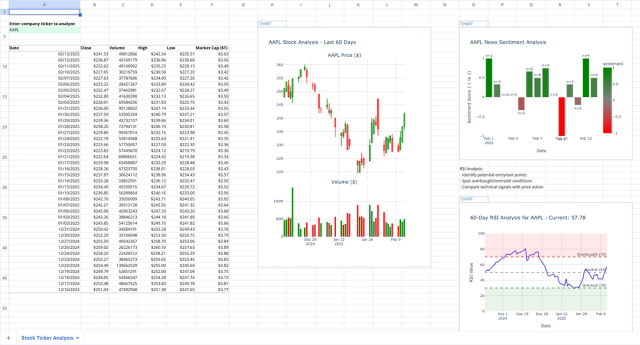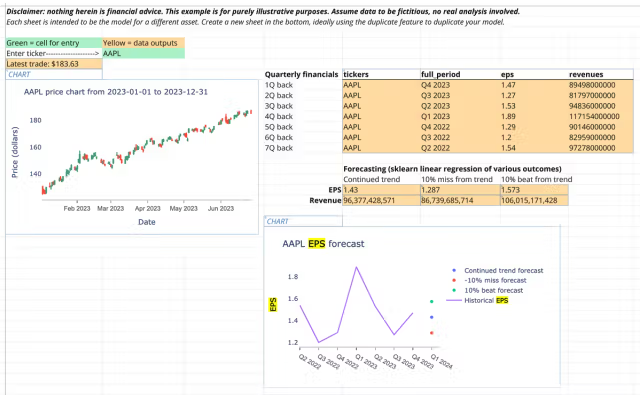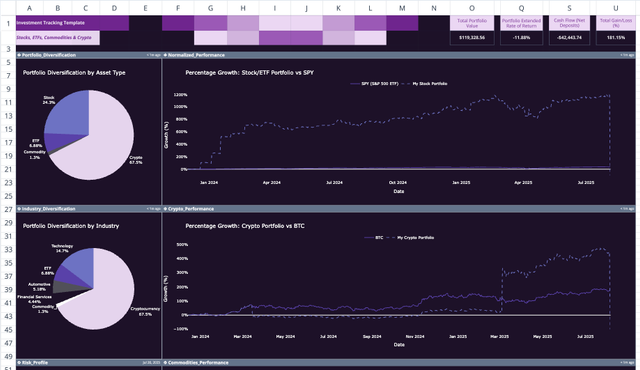TXN Financial Analysis FAQs
How can I analyze TXN financial data with AI?
You can use Quadratic to analyze Texas Instruments (TXN) financial data by scraping online sources, connecting live API data, and asking AI natural-language questions about revenue, earnings, growth, or valuation. Quadratic instantly visualizes and explains TXN's financial trends without leaving the spreadsheet.
Can I forecast Texas Instruments's future performance?
Yes. Quadratic helps you forecast TXN's future revenue, margins, or stock performance using Python-powered modeling. You can pull live financial data, apply predictive formulas, and generate visual projections of Texas Instruments's potential growth directly inside your Quadratic workbook by just asking the AI.
What live data can I pull for TXN?
Quadratic's AI Research feature lets you pull live data from the web — including TXN's financial statements, analyst estimates, and market trends — and combine it with your own datasets, CSVs, or APIs for deeper analysis and visualization.
Can I compare TXN with competitors?
Absolutely. Use Quadratic to compare TXN against competitors in the same industry. The AI can pull comparable company data, calculate ratios like P/E or P/S, and visualize how Texas Instruments's performance stacks up against the market.
How do I visualize TXN financial trends?
You can create charts and dashboards directly in Quadratic. The AI can automatically turn TXN data into graphs showing revenue growth, profit margins, valuation multiples, and more, all within the same spreadsheet.
Where does Quadratic get TXN data from?
Quadratic can connect to multiple sources — from CSV and Excel uploads to SQL databases, APIs, and web data — allowing you to gather TXN's latest financial information from trusted sources in real time.
Can I collaborate on my TXN analysis?
Yes, Quadratic supports real-time collaboration. You can invite teammates to analyze Texas Instruments's financial data together, run AI-powered research, and share dashboards, all in a secure, browser-based spreadsheet.
How can I use Quadratic for ongoing TXN research?
Set up a live Quadratic sheet to track TXN over time. Use AI to refresh data from the web or connect to a public API, update forecasts automatically, and identify new financial trends as they emerge, turning your spreadsheet into a living research tool.



